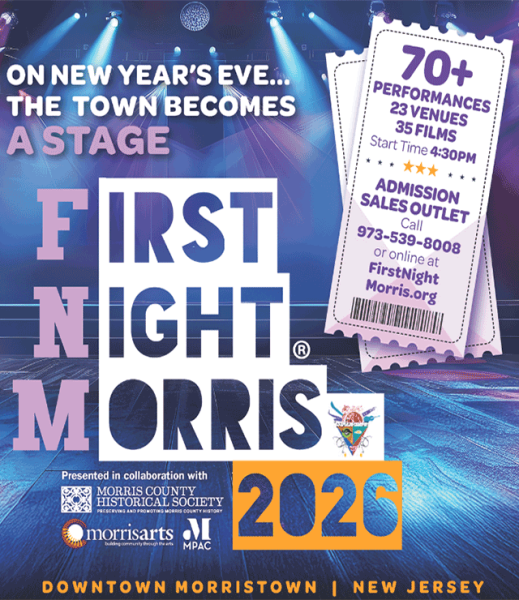By Eric Hillis, TheMovieWaffler.com
originally published: 09/20/2024

Christian Tafdrup's Speak No Evil is a grim Danish thriller that gained some global attention for its gruesome and cynical denouement. It's also an often hilarious satire of Northern European social mores in the manner of Ruben Östlund and Kristoffer Borgli. The film sees a Danish family accept an invitation to visit the home of the Dutch family they met while holidaying in Italy. Over the course of a long weekend the Danes become increasingly rattled by the behaviour of their Dutch hosts until things take a violent turn. Tafdrup uses this scenario to mine black comedy from the culture clash of Nordic reserve and Dutch extravagance. But while the movie functions very well as a social satire, it falls apart in its final act when it veers into full-on thriller mode. The joke of the Danes allowing themselves to be increasingly bullied by their Dutch hosts is ultimately stretched too far, reaching a point where their actions become laughable for unintended reasons.
Speak No Evil is so close to being a great movie that it warrants a remake, a second chance to correct its missteps. Despite the film being largely in English, it's now gotten an English language remake courtesy of British writer/director James Watkins. Helmed by the director of the incredibly unsettling survival thriller Eden Lake, you expect this remake to deliver on grisly thrills, but Watkins isn't exactly known for his comedy. It's no surprise then that this remake jettisons much of the original's satirical elements and is content with being a rather straightforward thriller. It simultaneously misses the point of Tafdrup's satire while fixing the nonsensical final act that derailed its Danish predecessor.
The culture clash element is almost entirely absent here. The Danes and Dutch have been replaced by Yanks and Brits, two cultures that have been cross-pollinating each other for so long that there's very little to distinguish them at this point. This remake could feature two American families or two British families and it wouldn't make any difference to how things play out here.
The Americans are Louise (Mackenzie Davis) and Ben (Scoot McNairy) and their 11-year-old daughter Agnes (Alix West Lefler). Louise and Ben are having some initially ambiguous problems with their marriage and they clash over how to deal with their daughter's anxiety issues, which see her cling obsessively to a stuffed rabbit (a prop Watkins makes great use of). While holidaying in Italy they encounter Paddy (James McAvoy) and Ciara (Aisling Franciosi), a boorish English couple (that the Americans have very English names and the Brits very Irish names suggests an early draft may have featured a tasty Anglo-Irish clash that no studio would greenlight) whose lack of reserve wins over Louise and Ben, who have spent their holiday being bored to tears by continental stiffs. Plus Agnes seems to bond with Paddy and Ciara's young son Ant (Dan Hough), who is unable to speak due to a medical condition.
London-based Louise and Ben are issued an invitation to visit Paddy and Ciara in their home in the English countryside, and after some initial reticence they decide it might be a good idea. Louise recalls how much Agnes enjoyed Ant's company, while Ben hopes the getaway might prove a chance to save the marriage.
If you've seen the original, what ensues for the next hour or so will prove very familiar. Paddy and Ciara prod Louise and Ben with micro-aggressions, like insisting the pescatarian Louise eat a sliver of goose and reprimanding Agnes in front of her parents. In the original, the Danes' refusal to speak up against their hosts was largely put down to their reticence to tell foreigners how to behave in their own country, something the Dutch latched onto with relish, brushing away any criticisms with a wounded retort of "That's just how we are here, sorry if it offends you." Part of the joke of the original was how Denmark and the Netherlands are right next door to one another and yet the two know very little about how their neighbours actually live. The US and UK might be separated by an ocean, but thanks to the dominance of American and British pop culture, there's very little Americans and Brits don't know about each other. Removing this culture clash aspect neuters much of the potential for comedy. Some of the original's specific jokes are carried over but fail to land in this new setting. Ironically, a joke about stereotypical Dutch stinginess would have made more sense here if McAvoy had been allowed to use his own Scottish accent rather than the West Country brogue he's burdened with. The most toe-curlingly awkward moment of the original, involving an Arab man in the employ of the Dutch family, is carried over but played in a messy manner that suggests the filmmakers aren't entirely comfortable including it, which really misses the point.
It's in the second half, when the comedy is out of the way and we're into undiluted thriller territory, that this remake comes into its own. The biggest problem with the original was buying into the idea that parents would allow their children to be placed in danger, something this remake is aware of and takes action to correct. Unlike the human doormat Danes of the original, the Americans here only allow themselves to be pushed so far. Once it becomes clear that Agnes might be in danger, something snaps and they step up as parents. The original offered a unique ending, but it was impossible to swallow. Here we get a far more conventional climax (one that bears the influence of Straw Dogs), but it's far more believable. Watkins cleverly fills some of the logic gaps of the original by giving more agency to the child characters, with Ant playing a much larger role in the narrative than his equivalent in the Danish film.
The movies that most justify remakes are those centred on characters over action. Redoing a slasher movie is a largely pointless affair, but seeing a meaty character drama retold with a new set of actors can prove rewarding, as is the case here. The new cast is arguably more compelling than the original, with McAvoy delivering the performance of his life as Paddy. McAvoy's bulky frame gives him the appearance of Russell Crowe in those few years before he began modelling himself on Orson Welles, and he's a terrifying sight when he eventually drops the charm act. Davis and McNairy are excellent as the bickering couple, generating such palpable unspoken tension that some of their scenes are genuinely uncomfortable to watch. Through no fault of her own however, Franciosi struggles to add any substance to Ciara, the character given a lot less agency here than her Dutch incarnation.
We now have two versions of this story, neither of which are perfect but which both have their own strengths and weaknesses. If you want a smart social satire you can watch the original and if you prefer a straight ahead psychological thriller you can opt for this remake. Take the first half of the original and the second half of the remake and you'd have one hell of a great satrical thriller.
Directed by: James Watkins
Starring: James McAvoy, Aisling Franciosi, Mackenzie Davis, Scoot McNairy
Eric Hillis is a film critic living in Sligo, Ireland who runs the website
TheMovieWaffler.com
FEATURED EVENTS
To narrow results by date range, categories,
or region of New Jersey
click here for our advanced search.
To narrow results by date range, categories,
or region of New Jersey
click here for our advanced search.
EVENT PREVIEWS
Roy's Hall presents a screening of "The Librarians" to benefit the Warren County library system
January 10, 2026
New Jersey Film Academy presents Breaking In Lecture Series with Armand Assante
January 28, 2026
State Theatre New Jersey presents Salute to Vienna New Year's Concert
December 31, 2025
Bananas Comedy Club presents Josh Firestine on New Year's Eve
December 31, 2025
The Basie presents Comedian Chris Distefano on New Year's Eve
December 31, 2025
Close Out The Year with First Night Morris County 2026
December 31, 2025
Start the New Year with Rikki Lee Wilson's Taylor Swift Tribute at The Broadway Theatre of Pitman
January 2-4, 2026
Saxophonist/Educator Julius Tolentino to perform with Former Students at January Jersey Jazz LIVE!
January 4, 2026
Gateway Playhouse To Hold Auditions For First Two Musicals Of 2026 MainStage Season
January 5, 2026
Centenary Stage Company presents Redefining Wonder featuring Illusionist Chris Funk
January 8, 2026


















